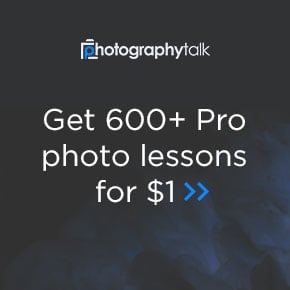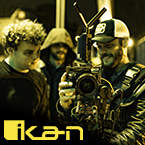- Forum
- General Discussion | Introductions | Off Topic Forum
- Photography General Discussion
- Has the photography society become too dependent on Photoshop?
Has the photography society become too dependent on Photoshop?
Post #286031
I'm babbling, what do you think about all of this?
-

- KCook
- Photo Elder
-
- Canon EOS 50D and Olympus E-P5
- Followers: 1325
- Posts: 5410
-
Points:
32913
Post #286036
www.photographytalk.com/forum/photograph...the-realization-that
www.photographytalk.com/forum/photograph...rocessed-in-software ?
Kelly
-
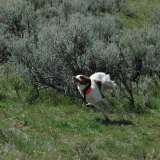
- Don Fischer
- Photography Hooked
-
- Nikon D5000
- Followers: 341
- Posts: 989
-
Points:
2442
Post #286040
I've pretty much proven to myself that my post prepping is awful limited due to me. I have a brother and two nephew's that can take a photo, put it in the computer and make it completely into something else. Who that does portraits for a living doesn't fix up the blemish here and wart there? Fool with the light to make the face look better. At least that's what I'm told. I look at side by side photo's and they look so much alike often I can't tell the difference. And then if it doesn't say which is the manipulated photo, I can't tell.
Be interesting to see a bunch of before and after photo's on one of these site's. One of my nephew's has that on his web site. He does it to show people the process he goes thru to make a photo as nice as possible. He has on of an office building with a four lane hwy going past it that he's added and a number of cars in the right spots. The building itself doesn't change other than the way it appears. Look at the first out of camera photo and the finished product and you won't think the are both from the original out of camera image.
-
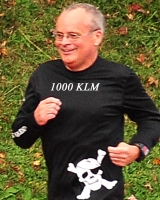
- Darrell
- Apprentice
-
- Nikon D7000 & D70
- Followers: 27
- Posts: 2059
-
Points:
0
Post #286068
There's a place for it, it can be used to do some creative photos. But I think you can compare it to something like writing, or a lot of things for that matter - if you were to rewrite practically every sentence you wrote wouldn't that tell you that you needed to improve your writing skills? wouldn't you have a hard time getting anything written because you're spending so much time rewriting?? With many things if you have to constantly correct mistakes how much would you ever get done?
It seems to make more sense if there's a purpose for it, otherwise it seems to be something of a crutch.
Sharon
Post #286076
icepics wrote: Some people seem to rely on fixing their photos later rather than improving their skills and learning techniques in framing and composing images; I think it would make for less work later on if a photographer can get good photos in camera.
It seems to make more sense if there's a purpose for it, otherwise it seems to be something of a crutch.
I with you there Sharon fully.
I went out shooting with a kid one weekend, and I kept hearing him say I can fix that, or this in post. He actually got mad at me because I was not shooting fast enough, and kept asking why I lugged along a tripod. He was constantly wanting to move on to the next place he had on his little list, and was wanting me to hurry. To which I would say this is not a race, and that I always try to get it right when I shoot it, or as right as possible, because I have always hated post work. When I saw him later I asked how he did with the what I thought was about 1000 shots, he said he got about 10 that worked out. I on the other hand deleted aboput that many out of 100 shots that day. I am not saying I am that much better than him, but I am more deliberate in my shooting. Now when I first shot digital I went through my I can shoot a bagillion shots phase, but when I looked at the images, and the work to make them right, I went back into my film frame of mind. I do not care if I shoot one photo, or 100 in a day, but I do care to, and attempt to get it as right as possible. Also I am not a purist, as some like to throw that label on us, but I am a perfectionist in anything I try to do, there is a difference.
I started in film and did my own processing, and my own printing as well. Then there is slide film which I shot a lot of as well. For slide film there is almost zero forgiveness if you screw the shot. With print film you can fix a lot, but not on slides. I love digital in that now I can do it in maybe one or two steps. I may have to tweak the levels a bit, some brightness, and contrast, and that is pretty much what I have to do with maybe around 30% of my images. I shoot both RAW+ Jpeg fine so I have the best of both worlds to play with. And I preprocess my images using the picture controls that affect the jpegs, this is how you get what you want from the final images.
Here is a hint. When you first get your camera, try all the levels of adjustment in camera, and then compare then side by side. This is how you learn to process before you even trip your shutter. You can do far more than you think to get it right, or you can post process, it is your choice. I prefer method one.
-
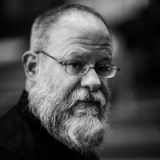
- garyrhook
- Oh Wise One
-
- Nikon D850, Nikon D750, Panasonic G7K
- Followers: 912
- Posts: 11103
-
Points:
67681
Post #286091
Photoshop is a tool, nothing more. It would be nice if people would stop blaming the hammer.
I give myself challenges that require PP; can't do 'em otherwise. And sometimes, regardless of how well I frame a shot, I might find that some cloning can remove something I don't want. Or some healing can smooth a wrinkle or remove a blemish that just really doesn't need to be there. I am at a loss to understand how this is a bad thing, given that it used to be called airbrushing.
Regarding the young man described by the OP, his problem is not a reliance on PS, his problem is a lack of care, attention to detail, patience, etc. His assertion that he could fix it later is just a lie he tells himself to rationalize his shortcomings.
-

- hghlndr6
- Master of the Lens
- Nikon: P510, D600, D7100
- Followers: 1222
- Posts: 1650
-
Points:
28119
-

- Don Fischer
- Photography Hooked
-
- Nikon D5000
- Followers: 341
- Posts: 989
-
Points:
2442
Post #286163
-

- garyrhook
- Oh Wise One
-
- Nikon D850, Nikon D750, Panasonic G7K
- Followers: 912
- Posts: 11103
-
Points:
67681
Post #286167
Don Fischer wrote: The camera is also a tool! But some seem willing to except less and fix it later in some photo program.
Well, yes, that is a mindset, but the point I was trying to make is that (in the example given) the young man ended up with nothing that could be salvaged. Even with an 80lb sledgehammer like PS. So the problem isn't a reliance on the software. If he could use the software to create good images, that would be OK. But apparently that's not possible, despite the claims.
-

- Don Fischer
- Photography Hooked
-
- Nikon D5000
- Followers: 341
- Posts: 989
-
Points:
2442
Post #286168
Post #286214
Pretty much so. But that all depends on which way you screw the pooch, and which format it is. You have to look at RAW as print film, and Jpegs as slide. With both if you blow out the highlights you are screwed, but if you under expose especially with RAW there is an amazing amount of detail you can call back, with Jpegs you can recover some but not even half as much, and it will screw up other parts of the photo that are right. I have recovered highlights before on some photos by using color shading, but it never looked right, and took far too much work to even get mediocre results. So you are still as always better off getting the shot right when shot than just doing the spray&pray.Don Fischer wrote: In other words, you have to have something to start with for photo programs to work. I'd buy that!
-

- Vahrenkamp
- Master of the Lens
-
- Nikon D800
- Followers: 287
- Posts: 1605
-
Points:
7635
Post #286235
-

- effron
- Newbie
- Followers: 1623
-
Points:
129640
-

- Prago
- Master of the Lens
-
- Nikon D300
- Followers: 232
- Posts: 1667
-
Points:
13360
Post #286341
SWM into chainsaws and hockey masks seeks like-minded SWF. No weirdos, please
- Forum
- General Discussion | Introductions | Off Topic Forum
- Photography General Discussion
- Has the photography society become too dependent on Photoshop?
Latest Reviews
The Olympus Pen E-P7 is an affordable micro four thirds mirrorless camera with 4K video capabilities, a 20.3MP sensor, and 121 focus points, making it a solid entry-level camera for beginners.
The Panasonic G9 II is a 25.2-megapixel micro four thirds camera with numerous features that make it punch out of its weight class, like 779 AF points, 5.8K video, and weather sealing.
The Fujifilm XT5 is a 40MP mirrorless camera capable of 6.2K video at 30p. With those specs, it’s an ideal choice for photographers needing a camera to pull double duty for imaging and video.
The Canon EOS R100 is an entry-level mirrorless camera introduced in 2023. But just because it’s an entry-level camera doesn’t mean it’s a bare-bones camera. Find out why in this review!
Forum Top Posters
-
1Scotty 7 posts
-
2Arthurvon 2 posts
-
3Gammill 2 posts
-
4Shadowfixe... 2 posts
-
5Whynaut 2 posts
-
6Happy Hour 2 posts
-
7Sanford 2 posts
-
8TCav 2 posts
-
9Ian Stone 2 posts
-
10Eric A 2 posts
Latest Articles
Capturing beautiful portraits requires an understanding of compositional techniques (and a lot of other things). In this guide, learn how to master low-angle portrait composition for beautiful results!
Tree photography is an interesting genre of landscapes that use the size, shape, and texture of trees as the primary element of interest. With these quick tips, you can master the art of photographing trees!
Auto white balance is a camera setting that adjusts the color temperature of your images automatically. It often works well, but you should know a few tips to fix problems it might cause, too.
The Canon EOS 5D Mark III might be more than a decade old, but it still has the chops to be a quality camera for photographers in 2024.
Starting a photography business can be a daunting task. There is a lot to do, and many mistakes can be made. This guide helps you minimize mistakes and maximize your success!
The Canon 6D Mark II might be an older DSLR, but that doesn’t mean it isn’t a good option for 2024. In fact, this budget-friendly camera is a powerhouse for stills and videos.
In this guide to the bokeh effect, you’ll learn what bokeh is and the factors involved in creating it. You’ll also explore some beautiful example images to spark your creativity with bokeh!
Upgrade your kit in 2024 with the best intermediate camera on the market! The question is, what camera fits the bill? We’ve got three top options for you to choose from in this buyer’s guide.











